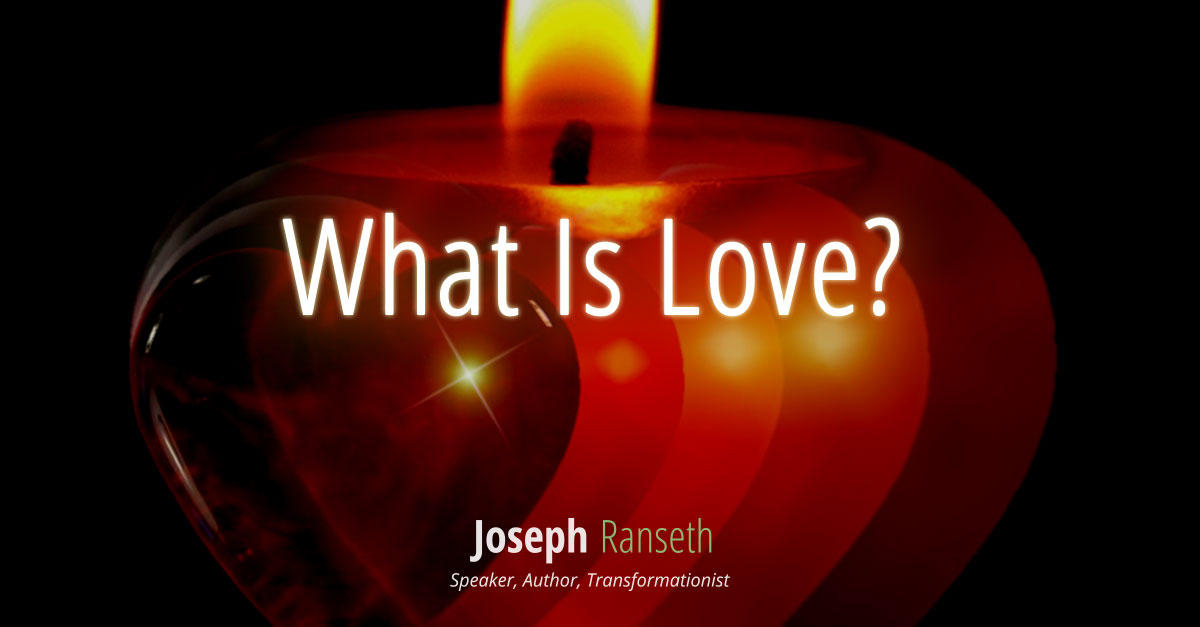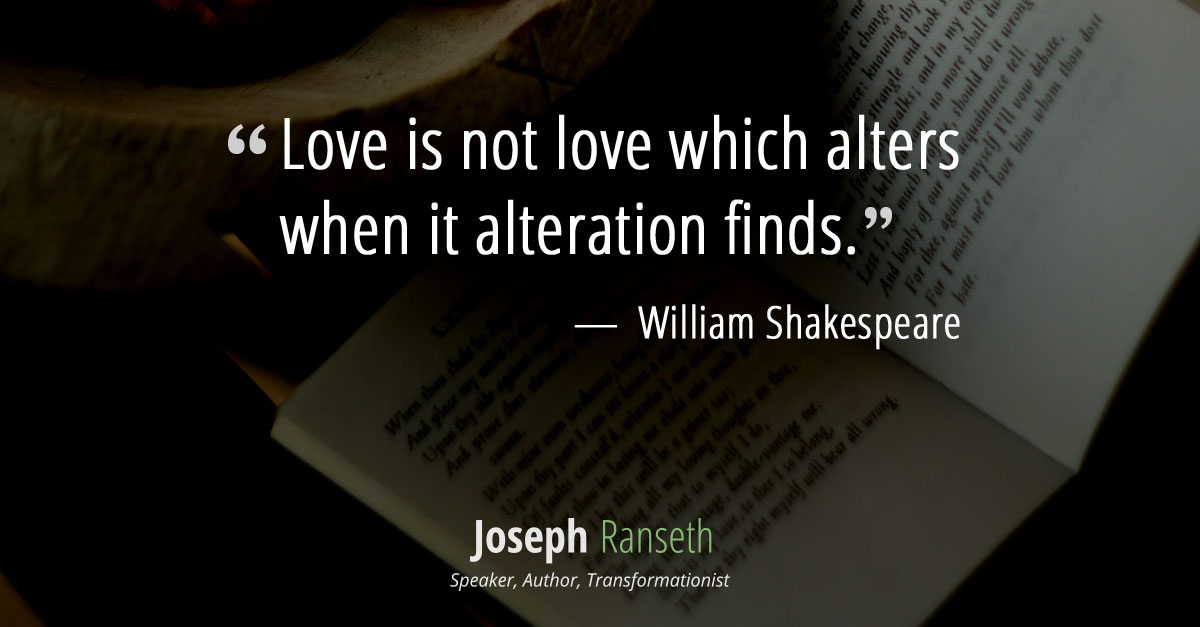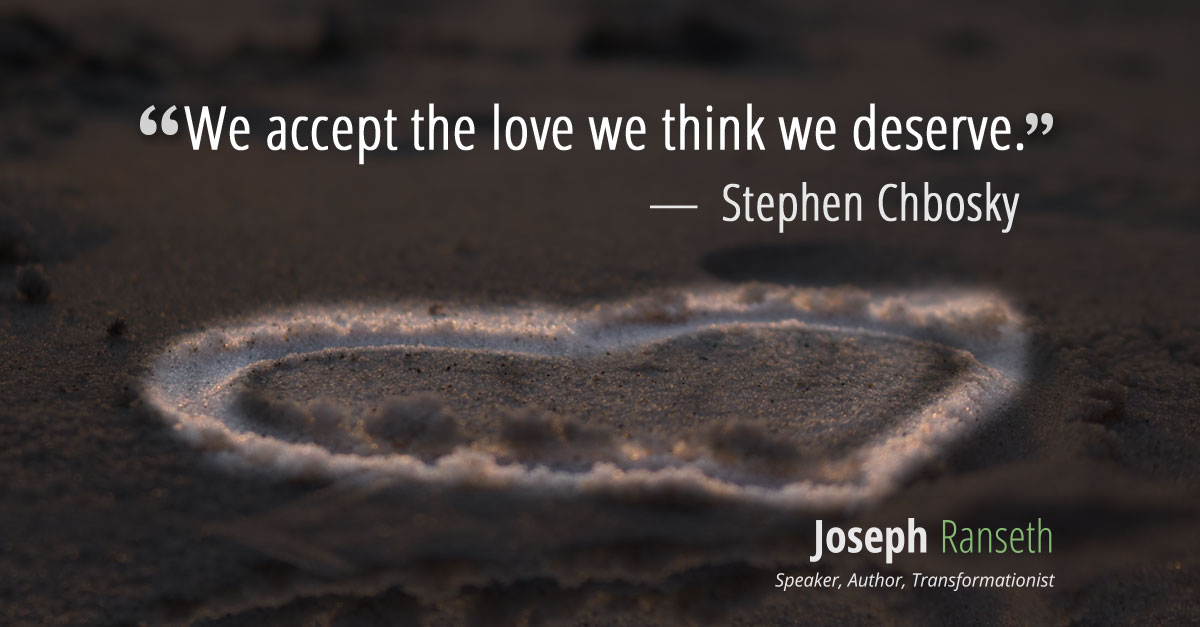When in times of challenge or stress, I find it most helpful to revisit the absolute basics, to make sure my foundation is strong and in order enough to support me in these trials. (In contrast with the tendency we all have, to try to “fix” our problems by throwing on the metaphoric band-aid of distraction or external validation.)
Lately, I’ve found it necessary to ask myself: What Is Love?

What Is Love?
Instinctively, the description of love by William Shakespeare pops into my mind:

“Love is not love which alters when it alteration finds.”
I know this to be true.
And, I have always been able to observe this principle “in others“. Meaning, I would judge them when I felt that they didn’t really love me like they said they did, or I thought they withheld love because I didn’t meet their needs.
(It’s amazing how easy it is to see what’s wrong with other people, isn’t it?)
Now, however, I knew that I had to realize how this lack of true, unconditional love exists in me…
Tough Love… For Myself
After asking myself: “Is my love altering for those I say I love? Do I stop loving others because they don’t meet my expectations?”I had to admit that I am still very far from being a perfectly loving being.
I came up with some important realizations about how unconditional love really works, and how I know if I have unconditional love.
With unconditional love:
- If I truly do love someone once, I will always love them.
- Though the nature of the relationship may change, I will love still love them.
- I will always desire for their happiness – whether they search for it in the way that I think they should or not – for that is what love does.
.
In short, if I truly did love you once, I must love you still… or it wasn’t ever love to begin with.
How that love is expressed will obviously change, (ie: I won’t share a bed with someone I am no longer in a relationship with), but the core of love – desiring for their true happiness – must remain.
If not, it was just me using you to satisfy my own needs. (Sadly, this is the best that most of us are capable of)
Our Own Limitations to Loving… And Being Loved
If we talk about love so much, why is it that we have problems truly loving others?
We only have to capacity to love others as much as we love ourselves.
Often we find ourselves angry at other people for the choices they make, especially the ones that hurt us. This is a sign that we need to love ourselves. Remember that “the opposite of love is not hate, but indifference.” It’s okay to feel angry, but understand what it is. Anger is not lashing out to hurt another intentionally, but most often is just an expression of our own hurt.
As one friend said:
“Hurt people, hurt people”
People do things that hurt others, because they are hurt themselves. Knowing this, it does no good at all to be angry back. What we need to do is to love them. To do so, we must first love ourselves sufficiently.
If I do react with anger, it means I have a lack of love for myself, and am incapable of loving you in that moment. What I need to do first is to “fill up my own cup”, and that comes from within.
Similarly, not wishing you happiness is just denying happiness for myself. That’s all that love for others is anyway: an expression of how we love ourselves.
What Love Really Is
Love is not a feeling. (Though we often equate it as such)
Love is not something that we fall into, or out of. (Though many of us believe so)

However it looks, my wish is for your happiness.
Love is a verb. It’s something we do, it’s a choice we make. But, it’s more than that. Love is a sincere desire for the other person’s happiness.
If I love you, I want for your happiness. And, if I truly love you, I will allow you to search for it as you desire.
I will honour and respect each step of your life path, as part of your search for happiness…. And I will do this, because I know the value of my own path.
And so, after much introspection, after processing through and understanding my own hurt, my own limitations in love, I have one thing to say.
It is the same thing I said in the beginning:
I love you.


I love this post. It is so very healthy and open.
” had to admit that I am still very far from being a perfectly loving being” – – anytime the word perfect is used, its an automatic fail. Perfection doesn’t exist. Constant evolution and seeking to better ones self does however.
Love the site, will wander around some more
xoxo
Ali
I used to believe this..this is true love..the love that only God has..not humans..we can never attain this type of love..I loved my husband through thick, thin, his past, and his many times of cheating only to be lied to over and over. I love him still but had to leave him even though he told me he was only truly happy with me. I want for his true happiness but in order for him to have that, I would have to lay down once more like I have so many times in the past and die to everything I am. So what of that?..Does not God love me enough to want my happiness?..how do you navigate through that?..It is devastating to say the least..after 23 years of marriage and 3 beautiful children and numerous other women only to be lied to over and over. I am bitter, I am in great pain, I tried to love how it is we are supposed to only to become a non person, a doormat. I am now to the point that does God really even exist, or is all this we tell ourselves something we do to make our own selfish hearts feel better? My problem?…I have given over my entire self to my family for years for their benefit as I dwindled, now as I am the one leaving I have destroyed so much not just for my husband but for my children who I tried so hard to protect over the years by turning the other cheek, because love is supposed to cover a multitude of sins right?..I am at a loss as of what to do now..I followed God and his principles and watched it all be taken, all my hopes and dreams, I no longer want to even be here..So don’t fool yourself, we are not capable of loving as God does, we are imperfect and no one will ever love us as it should be, it is an ideal and that’s all. We can only hope that it could be out there, but I’ve done that only to be disappointed all over again.